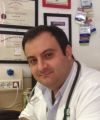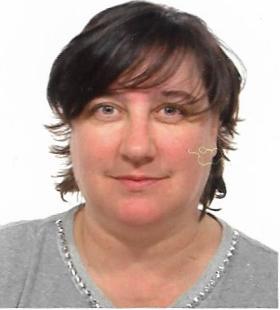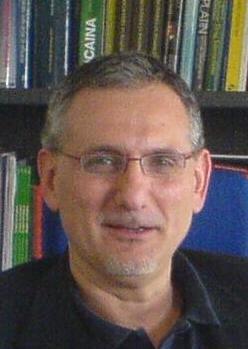Studying at the University of Verona
Here you can find information on the organisational aspects of the Programme, lecture timetables, learning activities and useful contact details for your time at the University, from enrolment to graduation.
Academic calendar
The academic calendar shows the deadlines and scheduled events that are relevant to students, teaching and technical-administrative staff of the University. Public holidays and University closures are also indicated. The academic year normally begins on 1 October each year and ends on 30 September of the following year.
Course calendar
The Academic Calendar sets out the degree programme lecture and exam timetables, as well as the relevant university closure dates..
| Period | From | To |
|---|---|---|
| INF BZ - 1° anno 1° sem | Oct 3, 2016 | Dec 23, 2016 |
| INF BZ - 2° anno 1° sem | Oct 10, 2016 | Dec 23, 2016 |
| INF BZ - 3° anno 1° sem | Oct 10, 2016 | Dec 23, 2016 |
| INF BZ - 1° anno 2° sem | Feb 1, 2017 | Apr 7, 2017 |
| INF BZ - 3° anno 2° sem | Mar 1, 2017 | Apr 13, 2017 |
| INF BZ - 2° anno 2° sem | Apr 26, 2017 | Jun 16, 2017 |
| Session | From | To |
|---|---|---|
| INF. BZ SESSIONE INVERNALE 1° - 2° ANNO | Jan 7, 2017 | Jan 31, 2017 |
| INF. BZ SESSIONE INVERNALE 3° ANNO | Feb 8, 2017 | Feb 28, 2017 |
| INF. BZ SESSIONE ESTIVA 1° ANNO (1 parte) | Apr 10, 2017 | Apr 28, 2017 |
| INF. BZ SESSIONE ESTIVA 3° ANNO (1 parte) | Apr 18, 2017 | Apr 28, 2017 |
| INF. BZ SESSIONE ESTIVA 1° ANNO (2 parte) | Jun 19, 2017 | Jul 7, 2017 |
| INF. BZ SESSIONE ESTIVA 2° ANNO | Jun 19, 2017 | Jul 7, 2017 |
| INF. BZ SESSIONE ESTIVA 3° ANNO (2 parte) | Jun 19, 2017 | Jul 7, 2017 |
| INF. BZ SESSIONE AUTUNNALE 2° ANNO | Sep 4, 2017 | Oct 6, 2017 |
| INF. BZ SESSIONE AUTUNNALE 1° ANNO | Sep 12, 2017 | Oct 6, 2017 |
| INF. BZ SESSIONE AUTUNNALE 3° ANNO | Sep 21, 2017 | Oct 20, 2017 |
| Session | From | To |
|---|---|---|
| SESSIONE AUTUNNALE | Nov 1, 2017 | Dec 31, 2017 |
| SESSIONE PRIMAVERILE | Mar 1, 2018 | Apr 30, 2018 |
| Period | From | To |
|---|---|---|
| Festa di Tutti i Santi | Nov 1, 2016 | Nov 1, 2016 |
| Festa dell'Immacolata | Dec 8, 2016 | Dec 8, 2016 |
| Vacanze Natalizie | Dec 23, 2016 | Jan 7, 2017 |
| Vacanze Pasquali | Apr 14, 2017 | Apr 18, 2017 |
| Festa della Liberazione | Apr 25, 2017 | Apr 25, 2017 |
| Festa dei Lavoratori | May 1, 2017 | May 1, 2017 |
| Festa della Repubblica | Jun 2, 2017 | Jun 2, 2017 |
| Description | Period | From | To |
|---|---|---|---|
| INF. BZ TIROCINIO 3 ANNO (1 esp.) | INF. BZ TIROCINIO 3 ANNO (1 esp.) | Jan 9, 2017 | Feb 7, 2017 |
| INF. BZ TIROCINIO 2 ANNO (1 esp.) | INF. BZ TIROCINIO 2 ANNO (1 esp.) | Feb 7, 2017 | Mar 12, 2017 |
| INF. BZ TIROCINIO 2 ANNO (2 esp.) | INF. BZ TIROCINIO 2 ANNO (2 esp.) | Mar 16, 2017 | Apr 23, 2017 |
| INF. BZ TIROCINIO 1 ANNO (1 esp.) | INF. BZ TIROCINIO 1 ANNO (1 esp.) | May 2, 2017 | Jun 9, 2017 |
| INF. BZ TIROCINIO 3 ANNO (2 esp.) | INF. BZ TIROCINIO 3 ANNO (2 esp.) | May 2, 2017 | Jun 11, 2017 |
| INF. BZ TIROCINIO 2 ANNO (3 esp.) | INF. BZ TIROCINIO 2 ANNO (3 esp.) | Jul 10, 2017 | Aug 7, 2017 |
| INF. BZ TIROCINIO 1 ANNO (2 esp.) | INF. BZ TIROCINIO 1 ANNO (2 esp.) | Aug 7, 2017 | Sep 11, 2017 |
| INF. BZ TIROCINIO 3 ANNO (3 esp.) | INF. BZ TIROCINIO 3 ANNO (3 esp.) | Aug 7, 2017 | Sep 20, 2017 |
Exam calendar
Exam dates and rounds are managed by the relevant Medicine Teaching and Student Services Unit.
To view all the exam sessions available, please use the Exam dashboard on ESSE3.
If you forgot your login details or have problems logging in, please contact the relevant IT HelpDesk, or check the login details recovery web page.
Should you have any doubts or questions, please check the Enrollment FAQs
Academic staff
 liliana.favari@univr.it
liliana.favari@univr.it
 astrid.kustatscher@claudiana.bz.it
astrid.kustatscher@claudiana.bz.it
 sylvia.lintner@sabes.it
sylvia.lintner@sabes.it
 m.mussner@virgilio.it
m.mussner@virgilio.it
Study Plan
The Study Plan includes all modules, teaching and learning activities that each student will need to undertake during their time at the University.
Please select your Study Plan based on your enrollment year.
1° Year
| Modules | Credits | TAF | SSD |
|---|
Professional Laboratories (1st year)
2° Year activated in the A.Y. 2017/2018
| Modules | Credits | TAF | SSD |
|---|
Professional Laboratories (2nd year)
3° Year activated in the A.Y. 2018/2019
| Modules | Credits | TAF | SSD |
|---|
Professional Laboratories (3rd year)
| Modules | Credits | TAF | SSD |
|---|
Professional Laboratories (1st year)
| Modules | Credits | TAF | SSD |
|---|
Professional Laboratories (2nd year)
| Modules | Credits | TAF | SSD |
|---|
Professional Laboratories (3rd year)
Legend | Type of training activity (TTA)
TAF (Type of Educational Activity) All courses and activities are classified into different types of educational activities, indicated by a letter.
General and methodological nursing (2016/2017)
The teaching is organized as follows:
Learning outcomes
The course introduces the student to the general and Clinical Nursing fundamentals. The program achieves to develop students’ knowledge relatively to general concepts of care and take care of the person and the family, ethical principles that inspire and guide the practice of care, the clinical methodology for identifying the patients’ needs and how to plan nursing activities and outcomes’ evaluation.
Program
Module: METODOLOGIA CLINICA INFERMIERISTICA
-------
Syllabus
The principles of an healthy diet, the data needed to evaluate nutritional status (eating habits, anthropometric data, laboratory tests), the alterations of the nutritional function (obesity, overweight, and malnutrition), the principles to assist a person during the recruitment of the meal;
Principles of a good sleep habit, physiologic effects of spleeping, the interventions to manage the person with sleep disorders (legs without resting, apnoeas night, insomnia in the elderly, the factors that hinder the sleep in the hospital (noise in environments of care).
Principles of a healthy mobility, physical exercise and alterations. Definitions of physical exercise, tolerance, sedentary lifestyle, mobility.
The principles in the measurement of vital signs (blood pressure, pulse, respiration rate, pulse oximetry, and body temperature), measurement mode, normal values and definition of alterations.
The main alterations of thermoregulation (hyperpyrexia, hyperthermia hypothermia) and being able to identify the nursing’s care to the person with a fever.
The prevention and treatment of bedsores.
Module: INFERMIERISTICA GENERALE
-------
SYLLABUS
The process of Nursing professionalization, the legislative sources of acting professional, the priciples and ethics that guide the care model, with particular reference to the Code of Ethics, the nurse's profile, and the arrangement of the plan of studies.
The evolution of health concept, the determinants of health, risk factors, preventie measures, health education.
The concept of disease, the meaning of illness and disease, the acute and chronic disease, the experiences and reactions to the disease.
The places of care and the organization of the National Health Service.
The theoretical foundations of the caring, the basic principles of caring nursing (centrality of the patient and the family, presence, superivision/surveillance, comfort, diagnosing. self-determination, continuity of care, intimacy and touch, confidentiality and respect for privacy in patient care).
The family's and community's role as health resource and support to the patient.
Module: ASSISTENZA CHIRURGICA GENERALE
-------
Surgery-during support.
Immediate post-surgery support.
Postoperative patient’s management (PONV, urinary retention, hypotension, delirium, respiratory failure).
Postoperative pain management, drinking and early nutrition, fluid management, the recovery of peristalsis and resolution of the ileum and the fatigue and postoperative recovery.
Support and educate the person with stoma (intestinal and urinary).
Limb-immobilized patient’s support and education.
Supporting and educative pathway for mastectomy/hemicolectomy/gastrectomy patient and the patient with hip prosthesis.
Bibliography
| Author | Title | Publishing house | Year | ISBN | Notes |
|---|---|---|---|---|---|
| Taylor - Lillis - Lynn | Principi fondamentali dell'assistenza infermierisitica (Edizione 8) | Piccin | 2018 | ||
| Mortari L., Saiani L. | Gesti e pensieri di cura | MC Graw Hill, Milano | 2013 | ||
| Marcadelli S. , Artiloi G. | Nursing narrativo - un approccio innovativo per l'assistenza | MC Graw Hill Milano | 2010 | ||
| Saiani, L., Brugnolli, A. | Trattato di cure infermieristiche (Edizione 3) | Idelson-Gnocchi | 2020 | 978-88-7947-576-1 | |
| Saiani L., Brugnolli A. | Trattato di Cure Infermieristiche | Idelson-Gnocchi | 2014 |
Examination Methods
Module: METODOLOGIA CLINICA INFERMIERISTICA
-------
Assessment methods
Writing Test
Module: INFERMIERISTICA GENERALE
-------
ASSESSMENT METHODS
Writing Test
BIBLIOGRAPHIE:
Saiani L., Brugnolli A. (2014) Trattato di cure infermieristiche. Ed. Sorbona Napoli
Potter P.A. Perry A.G. (2206) Infermieristica generale-clinica. Volume 1 Ed. Sorbona Napoli
Profilo professionale dell'Infermiere
Codice dontologico
Marcadelli S., Artili G. (2010) Nursin narrativo - Un approccio innovativo per l'assistenza Maggioli Editore
Mortari L. Saiani L. (2013) Gesti e pensieri di cura, MC Graw Hill Milano
Papa, G. Masera, P. Siri, (2013) La percezione della profeeione infermieristica fra i giovani. L'Infermiere n. 2
Censis (2012) L'infermiere protagonista della buona sanitá del futuro.
Dr.ssa Mag. Monica Masiero
Tel. 0471 - 067370
monica.masiero@claudiana.bz.it
Receives on Mondays 09.00 - 12.00 emailing
Module: ASSISTENZA CHIRURGICA GENERALE
-------
Writing Test
Career prospects
Module/Programme news
News for students
There you will find information, resources and services useful during your time at the University (Student’s exam record, your study plan on ESSE3, Distance Learning courses, university email account, office forms, administrative procedures, etc.). You can log into MyUnivr with your GIA login details: only in this way will you be able to receive notification of all the notices from your teachers and your secretariat via email and soon also via the Univr app.
Gestione carriere
Orario lezioni
COMUNICAZIONE DEL PRESIDENTE DEL COLLEGIO DIDATTICO
Carissime Studentesse,
Carissimi Studenti,
di seguito un promemoria relativo alle modalità di erogazione della didattica per il corso di studio in Infermieristica A.A. 2022/2023.
In ottemperanza alle linee guida della Commissione didattica di Ateneo, che prevedono una didattica improntata ad un pieno recupero delle modalità regolari di erogazione in presenza, la Commissione didattica del CdL nella seduta del 29 settembre 2022, ha deliberato il pieno ritorno all’utilizzo della didattica frontale in presenza.
Solo nei casi di comprovata positività al COVID-19, e/o in situazioni di particolare fragilità (sempre correlate alla pandemia) sarà previsto il collegamento sincrono in modalità streaming; a tal proposito ogni Docente, sulla propria pagina web, darà chiare indicazioni sulla modalità di fruizione della didattica.
La modalità asincrona (registrazioni delle lezioni) non è prevista.
Nell’augurarvi un buon Anno Accademico, vi saluto cordialmente
Prof. Paolo F Fabene
Guida ai programmi degli insegnamenti
Guida ai programmi degli insegnamenti
Documents
| Title | Info File |
|---|---|
|
|
pdf, it, 1594 KB, 12/12/22 |
|
|
pdf, it, 1310 KB, 02/09/21 |
Linee guida per riconoscimento cfu
Lo studente che intende chiedere il riconoscimento di moduli o insegnamenti pregressi dovrà presentare domanda, entro il 30 novembre dell’anno accademico in corso, seguendo le indicazioni indicate al link seguente: https://www.univr.it/it/i-nostri-servizi/segreterie-studenti/gestione-carriere-studenti-medicina-e-chirurgia/riconoscimento-crediti-acquisiti-da-una-carriera-pregressa-medicina
Documents
| Title | Info File |
|---|---|
|
|
pdf, it, 295 KB, 09/11/21 |
Student login and resources
Attività didattiche regime part-time
Modalità di richiesta
La domanda di iscrizione part-time può essere presentata all'inizio di ogni anno accademico e comunque entro il 30 novembre di ogni anno. Entro lo stesso termine, se necessario, lo studente potrà richiedere di tornare al regime full-time. Al link seguente la pagina del servizio https://www.univr.it/it/i-nostri-servizi/segreterie-studenti/flessibilita-nella-frequenza-dei-corsi/possibilita-di-iscrizione-part-time-e-ripristino-full-time
Una volta inviata la domanda, lo studente concorda in via preventiva con il Coordinatore della didattica professionale (CDP), il piano di studi che intende perseguire nel periodo di part-time compilando il modulo in allegato
Documents
| Title | Info File |
|---|---|
|
|
octet-stream, it, 1309 KB, 21/10/22 |
Graduation
Documents
| Title | Info File |
|---|---|
|
|
pdf, it, 242 KB, 19/01/24 |
|
|
pdf, it, 80 KB, 06/04/24 |
|
|
pdf, it, 43 KB, 06/04/24 |
|
|
pdf, it, 44 KB, 09/04/24 |
|
|
pdf, it, 148 KB, 06/04/24 |
|
|
pdf, it, 108 KB, 06/04/24 |
|
|
pdf, it, 115 KB, 06/04/24 |
|
|
pdf, it, 1487 KB, 18/02/22 |
|
|
pdf, it, 437 KB, 22/03/24 |
|
|
pdf, it, 957 KB, 22/03/24 |
|
|
pdf, it, 424 KB, 19/01/24 |

 +39 045 8027657
+39 045 8027657









